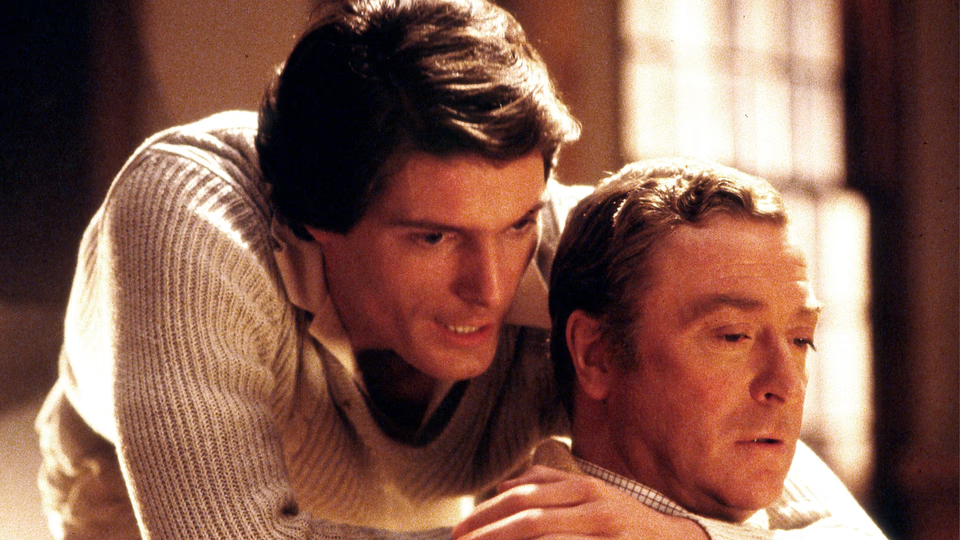Deathtrap

In this adaptation of Ira Levin’s long-running Broadway hit, Michael Caine plays a once prominent playwright staring down his fourth straight flop. Needing a hit, he hatches a plot to steal a dazzling manuscript from a former student played by Christopher Reeve. Complications ensue and spoilers follow.
Deathtrap proffers the best kind of magic trick. The kind where the magician tells you what they’re about to do, then still surprises you by doing it. Consider how, early on, Caine describes the manuscript:
A thriller in two acts. One set, five characters. A juicy murder in act one, terror in act two, and an ironic and astonishing resolution.
That’s the movie. It’s told us what’s coming and yet we’re still surprised.
The trick works because of the film’s delightful dialog. The script proves self-aware, as evidenced by Caine’s early comment on his trip out of New York City:
Do you know what happened to me tonight? I passed out in the train, and i came to in the terminus at Montauk! End of the line! Bloody symbolic.
These call-outs build credibility, allowing the film to afford Caine cynical quips like “Nothing recedes like success,” without feeling pretentious.
This rapid-fire biting satire enchants, distracting us from what should feel like a predictable plot. Instead, every twist surprises, and the first act shines.
Then, with the second act, the film one-ups itself in terms of meta-commentary as one character crafts a play based on the film’s first act. When asked why, said character replies, “Because it’s there,” which invites another memorable quip in return:
That’s mountains, not plays! Plays are not there until some asshole writes them!
Great stuff. Caine shines in a role that feels written for him, but Reeve proves a revelation. Rather than pivot from his Superman persona, he leverages it early, his character reminiscent of Clark Kent. But as the film unfolds, he delivers a startling and fearless transformation as convincing as the best character actors.
Everything works until the ending. It diverges from the stage play, to disappointing result. On the one hand, I applaud the film for recognizing it could offer an ending that wasn’t stage-bound, but what it proffers feels lifted from one of Caine’s character’s bombs.
The film’s genius lies in its tonal tightrope between cynical satire and exploitative thrills. The new ending offers neither. Disappointing given a better ending was within reach. To describe it, I must venture into big spoiler territory. If you haven’t seen the movie yet, go watch it. I’ll wait.
…
Okay, so the film ends as predicted. We cut to the theatre the film opened in, as the finale unfolds as a play on stage. We see the enigmatic Swedish psychic survive and learn she has passed off the play as her own. The film closes with her receiving the crowd’s adulation. Cynical perhaps, but not befitting the promised “ironic and astonishing resolution.”
Now, imagine if the film had kept the stage ending, with the psychic surviving and discovering the play, planning to make it her own. Not that different from the Broadway ending, mind you. But then we pull back from the stage and see Caine’s character, having survived and claimed the play as his own. But now the ironic twist. The audience is silent. No applause, just murmurings about the strange Swedish psychic character, artificial dialogue, and hammy performances. With his fifth straight flop, Caine stands ruined. All the death was for nothing. And worst of all, he realizes he’s incapable of recognizing good work anymore. Ironic and astonishing indeed.